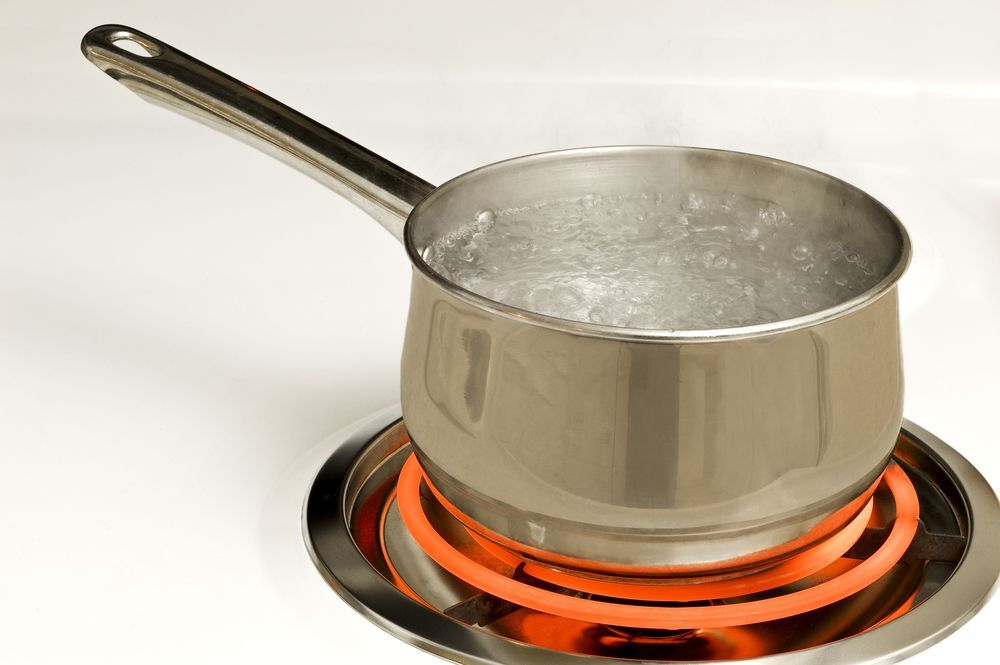Somehow, it feels worse if it is an aerosol.
I read the article. Apparently it only really works with hard water - that’s water with a high concentration of calcium carbonate. At high temperatures, the calcium carbonate becomes a solid, trapping the microplastics inside it, which is then removed from the water with a regular filter.
So, the boiling doesn’t remove it at all; it pre-treats hard water, making it capable of being filtered out afterwards.
uh… it seems like it… if that is the case, the whole article is misleading at best.
Would that just mean boiling water and then filtering it?
If so, doesn’t seem as misleading so much as just missing an extra step for a headline. Edit: of course, in addition to the hard water specification.
gotta make the water hard too, doesn’t work without hard water
But I can’t even make myself hard 😭
too soon.
Many regions won’t need that of course :)
Traps it how - guessing as a gas? What the fuck are microplastics and how does clear water trap that? I’m lost as fuck
“calcium carbonate in the (hard) water became solid at higher temperatures, trapping the plastic particles within”
No gas involved. They did recommend straining the boiled water through a coffee filter and the harder the water the better.
If I have soft water, can I add a Tums to my boiling water?
Removed by mod
By causing it to be absorbed into the calcium carbonate that is in hard water
The calcium carbonate in hard water precipitates out when you boil it, i.e. it turns solid.
Microplastics make for great nucleation points for the calcium carbonate to latch onto. So, the microplastics became super easy to filter out of the water (with some getting stuck to the bottom of the kettle in that white scale that you have to use vinegar to clean out.
The calcium carbonate in hard water precipitates out when you boil it, i.e. it turns solid.
Microplastics make for great nucleation points for the calcium carbonate to latch onto. So, the microplastics became super easy to filter out of the water (with some getting stuck to the bottom of the kettle in that white scale that you have to use vinegar to clean out.
Removed by mod
Luckily I have well water…probably some of the cleanest water on Earth…I’ve tested it several times with kits.
For now.
Probably for a very long time…we live in a very remote area…in the wilderness of Maine…our county has never allowed commercial development…the only things here are camps/cabins/homes.
There is microplastic in Antarctica. Unless your well feeds on an ancient aquifer instead of groundwater it will still be contaminated.
deleted by creator
I’m pretty sure microplastics have even been detected in rainwater.
But what about the counties upstream of you?
I don’t believe that’s how aquifers work.
Maine doesn’t really have anyone “upstream”.
No Washington, D.C. anymore?
???
ow never mind haha. I thought you lived there in the past. lol
No worries.
for… now.
You tested it for microplastics? They’re everywhere. Even on top of mountains
The Marianna Trench contains microplastics. (not a meme)
The eggs of all newly born children contain microplastics. (not a meme)
But this person’s water-well. Free and clear. I think the key is this their well is outside of the environment. (meme)
These fucking clickbait titles.
It only really works with hard water, otherwise you’d have to add calcium to the water before boiling it, and they only tested it with something like 3 different plastics, and they’re the most benign and least reactive ones.
This is not a magical solution to clean any water you boil.
Could instead reverse osmosis remove those particles and be used as consumer products?
Yes to the first, as for the second, who knows, but most likely not, as it’ll be mixed plastics and you can’t just mix them all together and make something out of them
I was about to say. The headline sounds like the equivalent of removing mud from water by boiling it.
Removing fine particles by aggregating them isn’t a brand new concept either, for what it’s worth.
Microplastics are tiny pieces of plastic debris measuring less than 0.2 inches (5 millimeters) long,
That can’t be right. There sure ain’t 5mm pieces of plastic in my drinking water. 0.05mm would be hard to believe.
Not sure that’s correct, but 5 mm being the upper cap doesn’t mean they’re that long.
I guess the author has just googled “define microplastics”… but when we think about microplastics in our drinking water we’re not thinking about 5mm pieces of plastic.
A consumer grade filter will remove things larger than 0.0005mm.
Sadly, that is the definition of microplastics. I’m not sure why a 5mm piece is considered „micro“
Disturbing that micro plastics evaporate!
So if we just boil the ocean…
It doesn’t. Please read the article.
Well, not boiling, but we do heat it up
It bonds with calcium but then they don’t say why it’s not an issue anymore. Does it become a super stable particle? I don’t fully get it.
They say filter out the calcium
There’s going to be some people that are going to start boiling all of their water after reading this article
Omg yes. Please dont, people.













